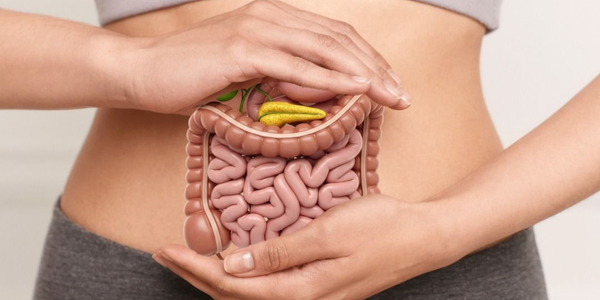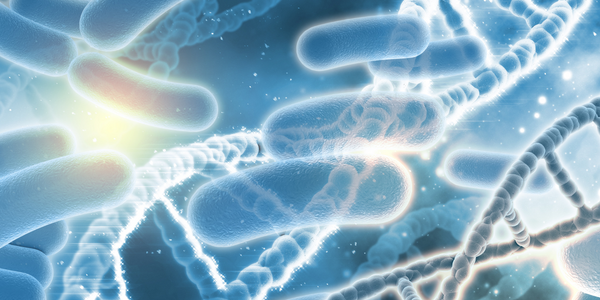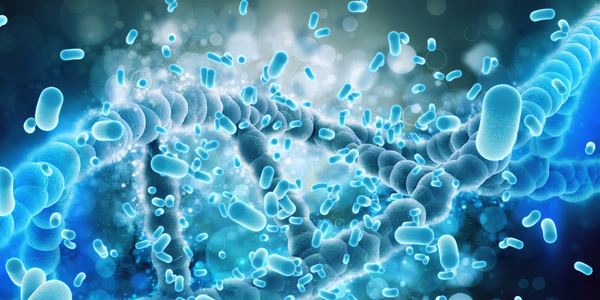Gut & Brain Connection
An upset stomach, acidity, gas before an exam/interview, mood swings, fear, anxiety, and depression are all examples of how the gut is communicating with our brain. Researchers and health experts call this connection – the gut-brain axis, a two-way communication via a nerve channel called the vagus nerve that sends out signals from the brain to the gut and back.
The brain has approximately 100 billion neurons transmitting biochemical signals to the body. The human gut contains a whooping 200-600 million neurons, mainly in the small and large intestine. And guess what, they are all connected to the brain.
So if you are in the best of spirits and feeling optimistic about things, believe that your gut flora is sending out happy signals to your brain as it produces neurotransmitters and biochemicals like serotonin and gamma-aminobutyric acid (GABA), which control anxiety, fear and create feelings of happiness.
The gut bacteria also produce digestive enzymes that help break down complex carbohydrates and fibre that our bodies cannot do on their own, aiding good digestion and nutrient absorption from food.
Advanced research in the area has given insights into gut flora controlling how the body responds to an infection by communicating with the immune cells. So it is evident that the gut microbiome supports a healthy digestive function and nutrition, boosts immunity, and improves mental health and behavior.
Food for good thoughts and a happy gut
The gut flora is a diverse ecosystem where good bacteria or natural probiotics, responsible for digestion, live in balance and harmony with harmful bacteria. Ideally, this is how the gut is supposed to be! We must practice good eating habits and make healthy lifestyle choices like consuming best foods for gut health, having whole foods and fibre- rich foods, avoiding fried and salty foods, reducing sugar intake, getting adequate sleep, and doing regular physical activities to maintain this balance in the gut.
When this balance is disturbed due to intake of unhealthy high fat/high sugar foods, chronic stress, sleep disorders, alcohol consumption, and poor diets, the harmful bacteria outnumber the good and cause gastrointestinal disorders like constipation, IBS, acidity, gas, and diarrhea. The destructive cells can also attach themselves to the immune cells and weaken the body's immunity, causing inflammation and infection.
That is why, try Wellbeing Nutrition’s Melts Healthy Gut. This product is a unison effect, all-natural formula with bioactive ingredients that work in absolute synergy to nourish the gut and support healthy digestive function.
These sugar-free thin oral strips are organic, non-GMO, GMP-certified, made using advanced nanoscience containing probiotics and bioactive ingredients like Bacillus Coagulans 10B CFU, which is known to protect the gut from infections while providing complete digestive balance.
Each dose contains a plant-based digestive enzyme blend of protease, lipase, and amylase 3, the three main enzymes that help break down nutrients for easier digestion.
Probiotics and Digestive Enzymes Melts contain natural digestive enzymes extracted from organic fruits- papain extracted from papaya. Its proteolytic enzymes aid digestion and help break down proteins into smaller peptides. Bromelain, an enzyme extracted from pineapple, guards against diarrhea-causing bacteria and reduces inflammation caused by inflammatory bowel disorders.
It also contains apple cider vinegar to boost stomach acid levels to prevent gas and bloating, reduce gut inflammation, and counter acid reflux.
Final takeaway
Gut health has far-reaching effects on our physical and mental wellbeing. Researchers have called the gut the ‘second brain’ and have shared studies on the importance of maintaining a healthy and well-nourished gut to improve energy levels and immunity. The adage ‘ we are what we eat’ aptly summarizes that the healthy foods and balanced lifestyle choices that we make, nourish each and every cell in our body, including the ones in the gut. So it is essential to watch what we eat because the gut is mindful of that!
References
Ronald D. Hills, Jr., Benjamin A. Pontefract, Hillary R. Mishcon, Cody A. Black, Steven C. Sutton, Cory R. Theberge, Nutrients. 2019 Jul; 11(7): 1613. Published online 2019 Jul 16. doi: 10.3390/nu11071613, PMCID: PMC6682904
- The gut-brain axis: interactions between enteric microbiota, central and enteric nervous systems,Marilia Carabotti, Annunziata Scirocco, Maria Antonietta Maselli, Carola Severi, Ann Gastroenterol. 2015 Apr-Jun; 28(2): 203–209. Correction in: Ann Gastroenterol. 2016 Apr-Jun; 29(2): 240. PMCID: PMC4367209
- Gut feelings: the emerging biology of gut–brain communication, Emeran A. Mayer, Nat Rev Neurosci. Author manuscript; available in PMC 2013 Dec 2. Published in final edited form as: Nat Rev Neurosci. 2011 Jul 13; 12(8): 10.1038/nrn3071. Published online 2011 Jul 13. doi: 10.1038/nrn3071, PMCID: PMC3845678
- Microbial degradation of complex carbohydrates in the gut, Harry J. Flint, Karen P. Scott, Sylvia H. Duncan, Petra Louis, Evelyne Forano, Gut Microbes. 2012 Jul 1; 3(4): 289–306. doi: 10.4161/gmic.19897, PMCID: PMC3463488
- The gut microbiome in health and in disease, Andrew B. Shreiner, John Y. Kao, Vincent B. Young,Curr Opin Gastroenterol. Author manuscript; available in PMC 2016 Jan 1.Published in final edited form as: Curr Opin Gastroenterol. 2015 Jan; 31(1): 69–75. doi: 10.1097/MOG.0000000000000139,PMCID: PMC4290017





























Leave a comment